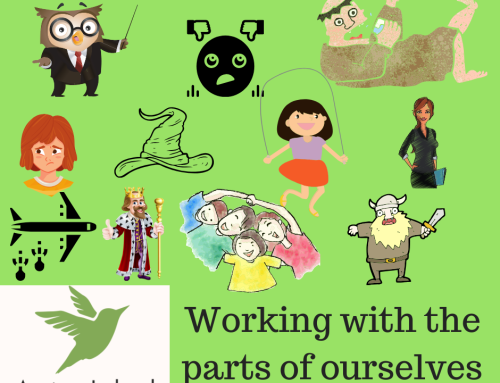Fallacy of Change
Feeling powerless and at the mercy of other people and circumstances when it comes to happiness and fulfilment?
When we live by the fallacy of change we think that if only others would change then we would be happy. Only then will we be appreciated, loved, supported, able, motivated, etc.
This is very different to asking someone openly and reasonably to change a part of their behaviour, asking for more support or communicating disappointment like an adult! The fallacy is not when we address the barriers in our lives and making allowances for them.
The Fallacy of change is unconscious and generally we don’t know we are applying it. Therefore it trips us up and prevents us from growing, moving and making ourselves happy.
The underlying assumption of this thinking style is that our happiness depends on the actions of others. The fallacy of change also assumes that other people should change to suit us automatically and/or that it is fair to pressure them to change.
Our attention and energy are therefore focused on others because our hope for happiness/fulfilment lies in getting them to meet our needs. However, of course the only person we can really control or have much hope of changing is ourselves.
The danger of this thinking style is that we let go of control over our own lives. We wait for others to anticipate our needs while we lie prone disappointed or we push and blame others for not seeing into our hearts and minds.
This can manifest in many ways, but two of the most obvious are in intimate relationships and in situations:
Changing intimate relationships:
“If my partner would only start to change everything would be good between us!” “Until they show me they love me I will never be worth anything.” “I feel bad because my friends don’t contact me, they need to make more of an effort.”
We all apply the fallacy of change within romantic and other personal relationships at times. We wish someone else was different, more romantic, less involved in their friends so that we feel better. We wish that they would pick up on how to make us happy.
When we feel our needs are not met we feel hurt. Although we may not have explained our needs fully we can feel justified in employing strategies to change those around us.
Strategies for changing others include blaming, demanding, withholding, and trading. The usual result is that the other person feels attacked or pushed around and doesn’t change at all.
We come into conflict as our behaviour is experienced as controlling by the other person. Be that a friend, lover or family member.
Again, communicating our preferences is not the problem. It’s assuming our preferences should be obeyed and not communicating them clearly that leads to issues. When we pin our happiness on what someone else does or doesn’t do for us we are bound to be disappointed and bring conflict to our lives.
Changing situations:
“Maybe when the new boss starts I’m going to start getting some respect around here”. “There’s no point in saying anything to anyone in this company that gets me nowhere”.
Waiting for changes to happen around us in terms situations is also a disaster in waiting. We excuse our lack of inaction by pinning it on the status quo. We deny our ability to author our lives.
“If the social welfare gave me a job I’d be set up”. “If the economy was better I would be able to try”. “If a gym opened next door to my work I’d go”, “If the family wasn’t so secretive I’d be able to be more open”.
These fallacies about “if only other things would change” stifle us, but also protect us from trying and failing. However, as they say nothing ventured nothing gained!
Although sometimes there is nothing we can do unless something changes often that is not the case! Or for example it is true that I can’t go on holidays without a passport. The fallacy of change states well then, I can’t go!
In reality yes I can go, but I have to do something about the passport first.
Why we do this:
The answer to this question is as varied as the people we ask. However, at the core there may be some common mechanisms that come into play.
When we expect others to make us happy what we are really doing is shirking our responsibility for that and handing them over the keys.
Although we can all find fulfilment in relationships, they are far more functional when both individuals set the bar for their own happiness and contentment and share this with the other without uncommunicated conditions.
Openly communicated conditions/boundaries such as fidelity, honesty, respect, courtesy, appreciation and equality are fine and welcome. But uncommunicated expectations or nagging, pressuring and intimidation to get someone else to change are not ok.
The fun stops when in any relationship it becomes that I demand attention, affection, input, etc. to make me fundamentally happy. This makes my emotions their responsibility.
Let’s take a step back and think about what this is communicating: it is effectively saying that without someone meeting my needs, my needs can’t be met and that’s their fault.
It is fundamentally unfair to expect someone who is not ourselves to know about and respond to our non-verbalised needs. It is also unfair to think that if I make him/her change then I will be happy.
This Fallacy links back to what a famous therapist Carl Rogers speaks about when he talks about our organismic valuing system. He says that when we receive conditional regard from our caregivers we learn to only feel valued when others are communicating to us that we are valuable.
If we have never learned that we are valuable in our own right, then we rely on others or achievements to feel this. This means that we expect others to make us feel good. Humans need to feel good about themselves or they get depressed and anxious. To avoid this people will do anything to make others change.
Another root of this fallacy may have been feeling helpless in youth or childhood. Never learning to take on the responsibility for our own happiness or for our own situations. Perhaps we were never encouraged or shown how we can act in our lives.
In situations this is critical but again it comes from a lack of self-belief in ourselves, lack of worth. No one thinks like this on purpose. They just have learned it through the years, but just as it has been learned it can be unlearned.
I make it happen :
When we try to push people to change, we are asking them to be different, so we can be happy. The assumption is that our happiness is in some way dependent on them and on how they behave.
But our happiness depends on us, on each of the decisions we make. We have to decide whether to leave or stay; work as a baker or an electrician, say yes or no. No one else can fulfil us.
Each person makes it happen for him or herself. It’s dangerous to ask someone else to make it happen for us because people resist when they are pressured to change. If they do change they often resent the person who made them change.
Asking a partner to change who they are to suit us brings nothing but conflict for both parties. If we cannot accept the others right to be who they are then we cannot fully be who we are either.
Expecting ourselves to be happy when situations change, macro or micro too is living in a fantasy and wasting the now. It makes us anxious, upset, difficult and brings about the opposite of what we are hoping for.
We all just want to be fulfilled and happy. But expecting others to do it for us is a bit like the opposite of the old proverb. “Give a man a fish and he will eat for a day, teach a man to fish and he will eat for a lifetime”. Time to stop begging for fish and get self sufficient folks!
Change it:
Ask in relationships:
- what need am I asking the other person to fill?
- Can I fill this need for myself?
Ask in life what have I done that has:
- Gotten me here and kept me here?
- What can I do to change the situation?
The argument of “ well if someone or something else changes then….”, is invalid. It gives all power away. There is always something we can be doing to make ourselves happy or to affirm our own worth.
If we depend on others to make our self esteem soar, we need to look at that. Someone else is never going to be able to keep their foot on the gas enough to get us to the moon and keep us there. They have their own s##t to deal with!
If the fallacy of change resonates with anyone reading this, guess what? Only the individual themselves can do something about changing it! Look at expectations and see where are they coming from?
Is it fear of failure and trying, is it from not having enough self-value. Is it that we are doing a Marge Simpson and are trying to change someone who will NEVER change?
Our happiness depends on the many thousands of large and small decisions we make during our lives. Only we can change it but there is help!
A lot of this is unconscious and in clinic I help people to uncover fallacies they apply every week.
Other Distorted Thinking styles are also extremely important for how we deal with and suffer from anxiety. Distorted thinking styles include: Filtering, Polarized Thinking, Over-generalization, Mind Reading, Catastraphizing, Personalization, Control Fallacies, The Fallacy of Fairness, Emotional Reasoning, The Fallacy of Change, Global Labeling, Blaming, Shoulds, Being Right and Heaven’s Rewards Fallacy.
Therapy is a great way to get to the bottom of these questions and at Anxiety Ireland, we have a team of accredited psychotherapists who work helping thousands of people with anxiety every year.
If curious about anxiety please feel free to visit our website, take our anxiety quiz or get anxiety help. On this page we will continue to write about Anxiety and related topics. We are always happy to answer messages to our page or I am happy to take calls/text to see how I can help: 087 063 0948.
Please like, comment and share if this was useful!
Michael
Team Anxiety Ireland
Anxiety is a merry-go-round, going nowhere fast, it’s ok to step off.




